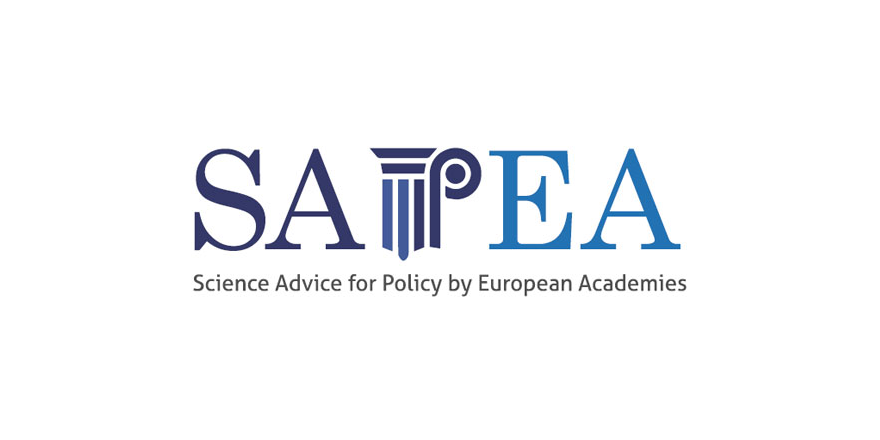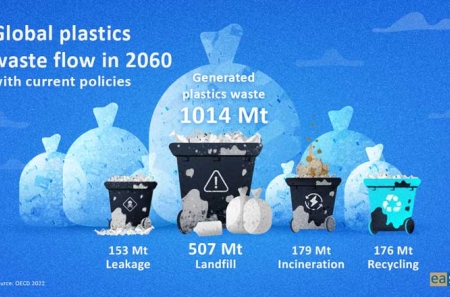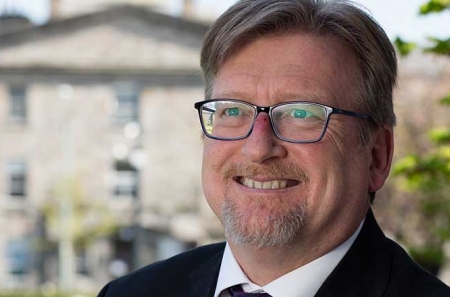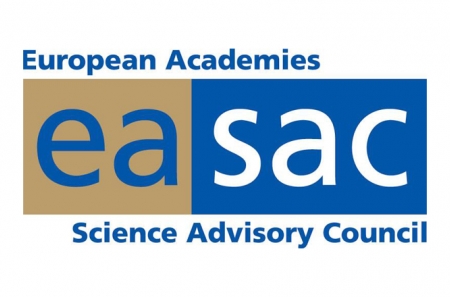
Call for Nominations of experts to take part in a SAPEA Working Group on ‘Strategic crisis management in the EU: Improving EU crisis prevention, preparedness, response and resilience’
08 July 2021The main question to be addressed is: ‘’Based on a broad and multidisciplinary understanding, how can the EU improve its strategic crisis management?’’
Background
The European Commission’s Scientific Advice Mechanism provides independent and transparent scientific advice to the European Commission, working with the independent Group of Chief Scientific Advisors to the European Commission and the SAPEA consortium.
SAPEA (Science Advice for Policy by European Academies) comprises the five European Academy Networks: AE, ALLEA, EASAC, Euro-CASE and FEAM – and brings together outstanding expertise in engineering, humanities, medicine, natural and social sciences from over 100 academies, young academies and learned societies across Europe.
The Group of Chief Scientific Advisors, in collaboration with the European Group on Ethics in Science and New Technologies, will develop a Scientific Opinion with the working title of ‘Strategic crisis management in the EU: Improving EU crisis prevention, preparedness, response and resilience’.
The Advisors intend to deliver their advice by June 2022. To inform their Opinion, they have asked SAPEA to produce an Evidence Review Report. The main question to be answered by the Scientific Advice Mechanism is: ‘’Based on a broad and multidisciplinary understanding, how can the EU improve its strategic crisis management?’’
This is the third phase of the Advisors’ work, dedicated to examining evidence on lessons learned from the COVID-19 crisis. The first two phases (done jointly with the EGE and Professor Peter Piot, Special Advisor to European Commission President Ursula von der Leyen on COVID-19) were:
- Phase 1: A joint ‘Statement on scientific advice to European policy makers during the COVID-19 pandemic’ (June 2020), which offered guidance for the provision of scientific advice in pandemics, in particular during the current COVID-19 crisis.
- Phase 2: A joint Opinion on ‘Improving pandemics preparedness and management’ (November 2020), which provides recommendations beyond the COVID-19 crisis. The Opinion has already informed the legal package ‘Towards a European Health Union: Stronger EU preparedness and response for health crises’ which was adopted on 11 November. Nine experts nominated by European academies and SAPEA contributed to this Opinion.
While only beginning to recover from the aftermath of the pandemic, the EU and the European societies must prepare for a range of other natural or human-made shocks which may include, and go beyond, major health threats. Future crises may, for example, be caused by a changing climate, environmental degradation, increasing inequality or security issues. These events may lead to disruptions and cascading effects throughout increasingly connected infrastructure networks, such as energy, water, transportation or digital networks. Moreover, these events are likely to be interrelated and to co-occur as a part of global threats. Improving the EU’s strategic crisis management, which is defined broadly to cover prevention, preparedness, response, recovery, and resilience, has thus become essential for protecting and enhancing the present and future wellbeing and prosperity of EU citizens, and achieving sustainable growth.
While the EU has shown its capacity to react to past and ongoing crises, there is nevertheless an urgent need to investigate – based on the best available cross-disciplinary expertise – improvements to the overarching EU cross-sectoral crisis management framework, while re-examining the core analytical and conceptual framework that has been used to inform EU policies related to crisis management.
The Advisors’ Scientific Opinion and the evidence review carried out by SAPEA should cover the following aspects:
- Identifying and prioritising where the added value of the EU lies in crisis situations;
- Providing an overview and streamlined definitions of relevant concepts and frameworks, and their use in crisis management at the EU level;
- Reviewing EU crisis governance, coordination and operations, especially looking at crosssectoral approaches to face multi-hazard crises and cascading effects;
- Reviewing the needed long-term strategies and adequate tools to support decision-making;
- Integrating social and ethical aspects, especially mitigation of inequalities in the face of crises, and citizen trust and participation in crisis mechanisms. It is also proposed to analyse up to 4 carefully selected evidence-based case studies of major threats, as a way to verify and exemplify the overarching findings, from the areas of:
- Climate change, environmental degradation including biodiversity loss and its cascading impacts;
- Security, including large-scale cybersecurity threats, strategic autonomy and hybrid threats;
- Serious cross-border health threats (beyond pandemics).
SAPEA call for nominations
SAPEA will undertake the Evidence Review Report that informs the Scientific Opinion of the Advisors. The SAPEA Evidence Review Report may contain evidence-based policy options. These will inform the Advisors’ Scientific Opinion, which will contain policy recommendations. To address the topic, SAPEA will set up an international and interdisciplinary working group, covering the necessary fields, both from the social sciences/humanities and natural sciences/technical fields. The Working Group will be chaired by Professor Tina Comes, who was appointed by the SAPEA Board. Professor Comes is Full Professor in Decision-Making and Digitalisation at the School of Business & Economics (University of Maastricht) and Associate Professor at the Faculty Technology, Policy & Management (TU Delft). Since 2014, she is Visiting Professor at Lamsade, Université Dauphine, Paris. She serves as Scientific Director of the 4TU Centre on Resilience Engineering (the Netherlands). She is also a member of the Norwegian Academy of Technological Sciences.
The experts will provide their input mostly via online meetings and are expected to draft sections of the Evidence Review Report between meetings. A first solid draft of the evidence review is expected by December 2021/January 2022, and a final draft before peer-review by April 2022.
Non-exclusive examples of areas of expertise that may be of relevance are provided below. However, all nominated experts should have expertise in the broad area of crisis management, prevention, preparedness, response, and resilience. This knowledge may be applied to certain areas in particular (e.g. health, climate, digital, society, infrastructure, governance, EU policy etc.):
- Political, policy sciences, governance of crises (at national and EU levels)
- History, quantitative history
- Economy, political economy, institutional economics, management science
- Natural and systems sciences, environmental studies, complexity
- Computer sciences, especially cyber resilience and social media analytics, crisis informatics
- Health and healthcare systems
- Psychology & cognitive sciences
- Technical sciences & engineering, especially looking at infrastructure resilience, design, tools and supportive innovations
- Security science and risk management
- Geography, (social) vulnerability
- Sociology, anthropology
- Legal sciences
- Ethical sciences, philosophy
A diverse group of experts will be selected in accordance with complementarity of expertise, and attention will be given to gender balance, geographical coverage and career level. All experts selected will be asked to complete the Standard Declaration of Interests form of the European Commission. A SAPEA Selection Committee will be responsible to suggest a composition of the Working Group to the SAPEA Board.
Expressions of interest
To express an interest in being nominated to this project by the Royal Irish Academy please submit a detailed curriculum vitae and a short explanation of how your experience meets the areas of expertise needed to policy@ria.ie by midday on Friday 13th August 2021
This opportunity is publicly advertised by the Royal Irish Academy.
All expressions of interest received will be considered by the Academy’s Policy Oversight Group- the unit tasked with advising upon the initiation and implementation of all of the Academy’s policy and international activities and responsible for overseeing a standardised quality process for all outputs. Chaired by the Academy’s Secretary of Policy and International Relations, the six members of this group are all elected Members of the Royal Irish Academy and come from a variety of disciplinary backgrounds in several institutions across the island of Ireland- both north and south of the border. On occasions, the Policy Oversight Group may also consult additional experts to inform their assessments and evaluations.
The Royal Irish Academy values diversity and strives for a culture of equality and inclusion in all of its activities. As outlined in its Strategic Plan 2019-2023, the Academy is committed to ensuring greater gender, disciplinary, institutional and overall diversity in every area of the Academy and its work throughout the island of Ireland. It particularly welcomes nominations from under-represented groups and communities.
As women are underrepresented in the Academy’s participation in international collaborative activities, nominations of women are particularly welcome.
Please refer to the Privacy Notice for Policy and International Relations, the RIA's Privacy page, for any further information on our data protection practices please email dataprotection@ria.ie



